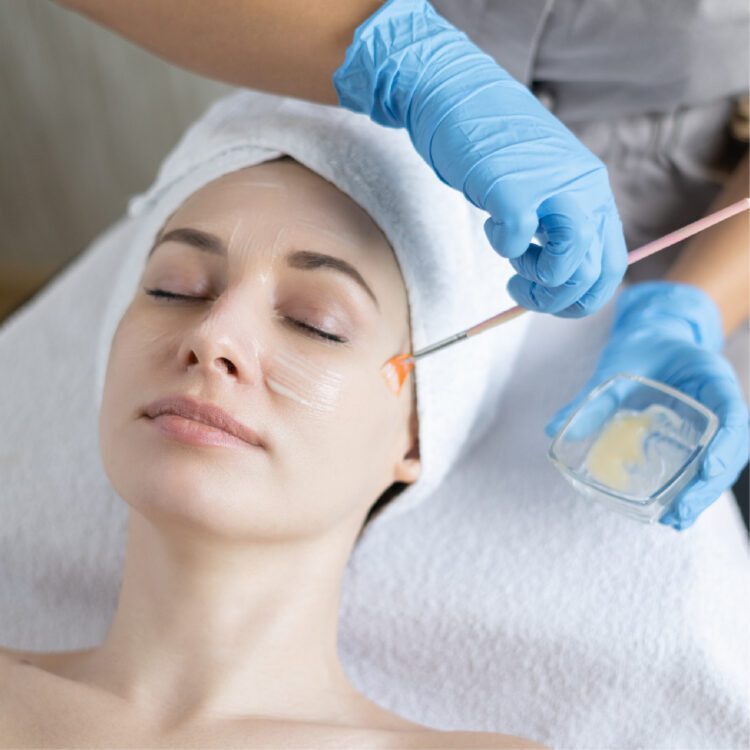What are peels?
Peels are cosmetic treatments that can be used on the face, hands, and neck. They are used to improve the look or feel of the skin. A solution is applied to the area being treated during this procedure, causing the skin to exfoliate and eventually peel off. When this occurs, the new skin beneath is often smoother, less wrinkled, and less damaged.
Peels are commonly used to treat wrinkles, discolored skin, and scars on the face. They can be performed alone or in conjunction with other cosmetic procedures.


Removes Uneven Pigmentation

Reduces Acne

Diminishes Wrinkles
Peels can be used for treating:
- Acne and acne scars
- Hyperpigmentation
- Fine lines and wrinkles
- Sun damage
- Brightening your face
- Deep exfoliation
Before undergoing a peel, you must:
- Stop using any type of retinol topical medication for at least 48 hours;
- Inform your skin care specialist of any medications you are taking.
- If you have a history of fever blisters or cold sores, use an antiviral medication to avoid a breakout around the mouth.
- To improve treatment, use specialized lotions such as glycolic acid lotions.
- The week before the peel, stop waxing, epilating, or using depilatory hair removal products. You should also refrain from bleaching your hair.
- The week before the peel, stop using facial scrubs and exfoliants.
Procedure:
- Before the procedure, they will likely have you tie back your hair.
- Your skin will be thoroughly cleansed with an agent that removes excess oils, while your eyes are protected with goggles or gauze.
- A peeling solution is applied to your skin.
- Different solutions produce different outcomes. The solution you use is determined by your goal.
Post care after peels:
- Keep skin lubricated and moisturized.
- Avoid using exfoliating products on your skin .
- Use sunscreen with an SPF of at least 30.
- Avoid smoking and secondhand smoke exposure.
- Instead of warm or hot water, wash your skin with cool water.
- Cosmetics should be avoided.
Frequently Asked Questions
Answer: Peels can produce results that last anywhere from a month to the rest of your life. The longevity of a peel's results is determined by several factors, the most important of which is the peel's strength.
Answer: The frequency of peels is entirely dependent on the type of peel performed. You can repeat your treatment for superficial or surface layer peels for up to once a month. Deep peels, on the other hand, necessitate additional healing time for your skin and should be performed only once every two to three years.
Answer: Most peels take between 30 and 60 minutes to complete, depending on the depth of the peel.
Answer: Peeling skin before it is ready to come off can be harmful. The majority of the peeling should be finished in three to four days, but it could take up to seven days for your fresh, new skin to develop.

